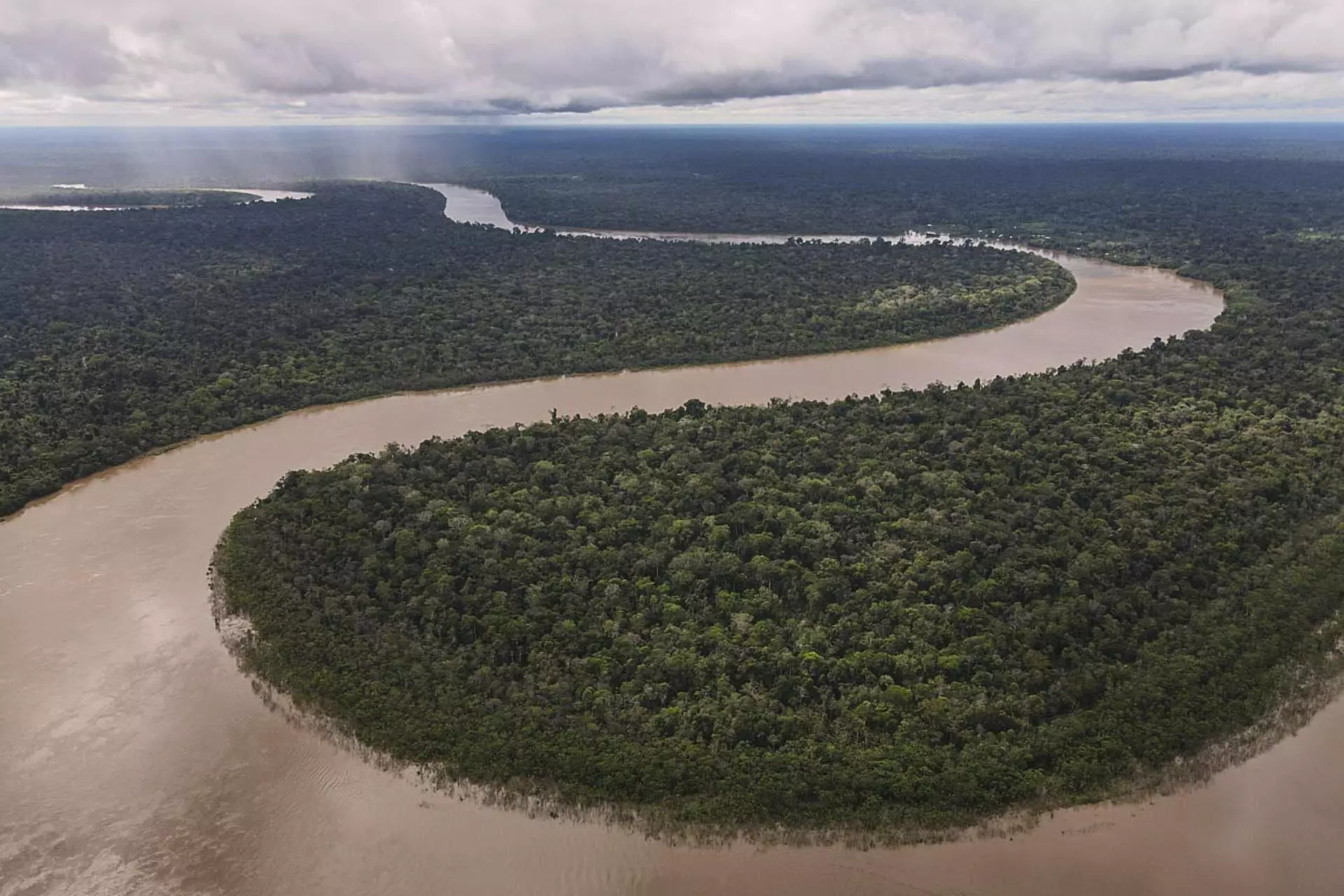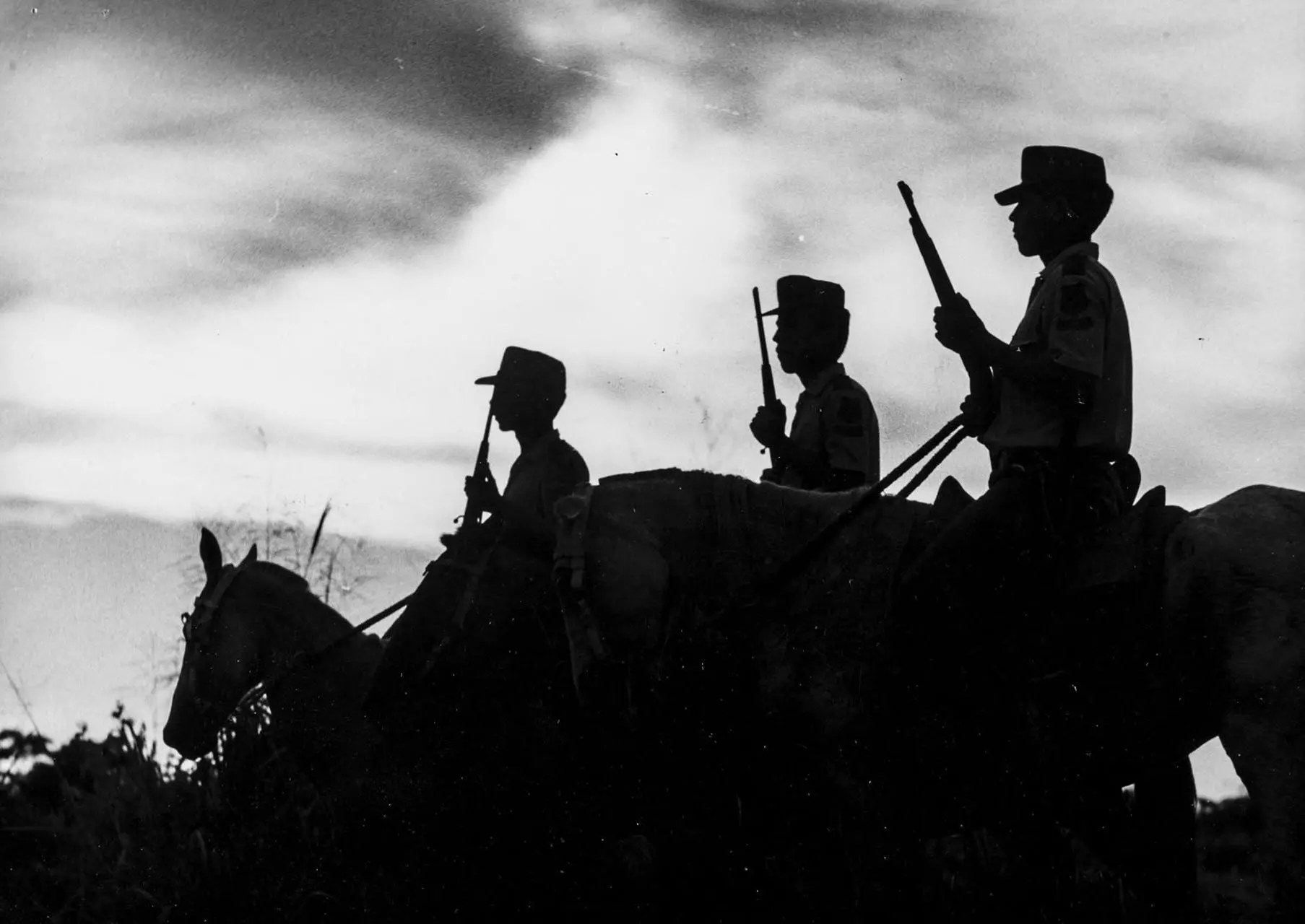There are countless reasons why the minister of Indigenous Peoples, Sonia Guajajara, calls the PL 490, a bill that aims to demarcate lands based on a cut-off date, “legislated genocide.” At the center of the debate is the proposition that only those Indigenous people who were occupying their territories on October 5, 1988, the date when the Constitution was enacted, will be entitled to lands, but this is just one of the atrocities written into this piece of legislation. The bill could become a much more ambitious law: it authorizes the planting of transgenic crops on Indigenous lands, it resumes a policy on isolated peoples that was in place during the dictatorship, and it opens up the possibility of building roads and hydroelectric plants without first consulting Indigenous people or agencies like the National Foundation of Indigenous Peoples and the Ministry of Indigenous Peoples. And worse yet: territories that were already demarcated could be taken from native peoples, using subjective criteria on what it means to “be Indigenous.”
Federal deputies rushed passage through the Chamber on May 30, with the Apocalypse Bill now moving to the Senate for debate. “It’s an attempt to legalize illegal things,” Indigenous attorney Eliésio Marubo, a prosecutor for the Union of Indigenous Peoples of the Javari Valley, told SUMAÚMA. “It puts Indigenous peoples and lands in an extremely fragile situation, including already demarcated lands.”

The middle Javari River region, in the Javari Valley Indigenous Lands, the area with the most isolated peoples in the Amazon, who are under threat by the bill being debated in Congress. Photo: Bruno Kelly/Amazônia Real
Ruralist and pro-Bolsonaro blocs have been pressing hard for a Senate vote on the bill to also take place under an emergency regime – in other words, they want a direct floor vote without the bill being considered by thematic committees. Senator Ciro Nogueira (Progressives Party, for the state of Piauí), the former Chief of Staff to Jair Bolsonaro (Liberal Party, for the state of Rio de Janeiro), put in a request on Tuesday (6/6) for proceedings to occur under this emergency regime. It will be up to Rodrigo Pacheco (Social Democratic Party, for the state of Minas Gerais), who presides over the Senate, to decide whether to put the request up for a vote – he has said that what happened in the lower chamber will not be repeated in the Senate. The senator from Piauí made his request one day before pro-Bolsonaro Justice André Mendonça, appointed to the Federal Supreme Court for being “terribly evangelical,” once again paused court hearings on the historic cut-off point. In the vacuum of a ruling from the courts, the lobby defending landowner interests in Congress is ramping up pressure to approve the historic cut-off point.
The text approved by the Chamber of Deputies is an aberration that goes against centuries of knowledge: it gives the federal government the chance to take back already demarcated Indigenous lands in the event of “changes in the community’s cultural traits or due to other factors caused by the lapse of time.” This would throw open the door for the courts to question whether a given group of peoples had “stopped being Indigenous” because they use cars, computers, or cell phones, for example. Anthropologists have already moved completely past this debate – Yanomami leader Davi Kopenawa did not, for instance, stop being Indigenous because he authored books that were published in other countries or because he has traveled the world defending his people’s cause and the planet’s protection. Yet Article 16 of the Apocalypse Bill makes such a determination possible, completely in sync with statements made by former President Jair Bolsonaro, who once declared that “Indians have changed, they’re evolving… Indians are, more and more, human beings just like us.”
If the federal government decides that Indigenous people are no longer Indigenous, the bill’s text allows these territories to be taken back, “giving them a different use in the public interest” or putting them toward agrarian reform. While speaking with journalists, Arthur Oliveira Maia (Brazil Union Party), a deputy from Bahia and the bill’s rapporteur, defended the article’s contents thusly: “Of course, if all of the Indians die, if for some reason people went away, and the elements characterizing the Indigenous reservation are no longer there, what should happen?”
Most of the anti-Indigenous and anti-nature agendas in one bill

Ruralist bloc members meet on May 9 to rally support to pass the bill implementing the historic cut-off point. Photo: Agricultural Parliamentary Front
Deputy Arthur Maia drafted the bill passed by the Chamber of Deputies by cobbling together 14 other bills, all focused on restricting Indigenous peoples’ rights to their lands. The proposed legislation had been hibernating in the Chamber since June 2021, but when Rosa Weber, the chief justice of the Federal Supreme Court, announced that hearings on the historic cut-off point would resume on June 7, the ruralist lobby sprang into action to pass it under an emergency regime. Along with the historic cut-off point, they shoved every malicious act that Congress has been trying for years to pass into the bill’s 34 articles, taking a chainsaw to Indigenous territories. Supreme Court hearings had barely begun when they were once again halted by pro-Bolsonaro Justice André Mendonça. Consideration of the historical cut-off point case will probably only resume in October.
Anything goes: from transgenics to hydroelectric plants on Indigenous lands

The Rural Indigenous Guards, created during the military dictatorship, acted to police and repress Indigenous villages and were even trained on the use of torture techniques. Photo: National Foundation of Indigenous Peoples (Funai)
Not even Brazil’s 114 isolated indigenous peoples were spared from the predatory ravaging of Indigenous lands. According to Brazil’s National Foundation of Indigenous Peoples, isolated Indigenous groups are defined as those that have “not established permanent contact with the national population, making them different from Indigenous peoples who maintain long-standing and intense contact with non-Indigenous people.” Since the business-military dictatorship ended in the 1980s, the National Foundation of Indigenous Peoples, led by Indigenous expert Sydney Possuelo, has adopted a policy where contact is not forced, while also creating a department with the specific aim of protecting isolated peoples’ decision to remain isolated.
The bill passed by the Chamber of Deputies takes a sledgehammer to this public policy. Article 29 states that “in the case of isolated Indigenous people, the government and civil society must fully respect their freedoms and traditional ways of life and contact should be avoided to the utmost, except [and there’s the crowbar prying open the door] to provide medical aid or to intermediate government action in the public interest.” Once again, Congress and its financial backers are trying to advance on lands belonging to those who decided that their lives are better without contact. “The definition of what a government action in the public interest could be is quite ambiguous. Building a large hydroelectric plant can be considered in the public interest, depending on the arguments,” warns attorney Carolina Santana, who works for the Observatory of Indigenous Peoples.
“Throughout our history, the biggest killer of Indians was viruses,” Sydney Possuelo had already stated. Researchers estimate that from the sixteenth to the seventeenth century, over 90% of the Indigenous population was exterminated, mostly by diseases brought over by European invaders. While during the dictatorship of the twentieth century, when the National Foundation of Indigenous Peoples and the Army forced contact with isolated peoples in the Amazon to rip them from their territories and build projects such as the Trans-Amazonian and BR-174 highways, there were dozens of cases of epidemics of diseases like the flu and measles, with hundreds of Indigenous people dying.
By passing the Apocalypse Bill, Congress has chosen to revisit these times of horror and ensure the priority of private interests over the provisions of Article 231 of the Constitution: Indigenous peoples hold “original rights over the lands they traditionally occupy, with the federal government responsible for demarcating these same lands, protecting and ensuring respect for all of their properties.”
Article 21 of the bill that 283 federal deputies have already voted to pass allows for “strategic expansion of the highway system, exploration of energy alternatives of a strategic nature, and protection of wealth of a strategic nature [that] will be implemented regardless of consultation with the Indigenous communities involved or with the competent federal Indigenous affairs agency.”
Later on, the bill opens up the possibility “of economic activities on Indigenous lands, provided that this is for the community itself, allowing for cooperation and contracting of non-indigenous third parties.” This means that rural business owners can execute agreements – albeit not leasing agreements – with Indigenous people to explore their territories. The bill passed by the deputies also amends an article in a 2007 law that authorized the planting of genetically modified organisms in Brazil: this time taking Indigenous lands off of the list of locations where these crops are prohibited. This means that if the Senate passes the bill, transgenics could be planted on Indigenous lands, with irreversible consequences for every biome, including the Amazon.
In the Senate, the bill known as PL 490 in the Chamber of Deputies was given a new number. It now goes by PL 2903 and is already being considered by the Agriculture and Agrarian Reform Committee. The rapporteur there will be Senator Soraya Thronicke (Brazil Union Party, from the state of Mato Grosso do Sul), elected in 2018 by the Social Liberal Party, which was Jair Bolsonaro’s party at the time. A defender of landowner interests and of the “distribution of lands to contain deforestation,” an issue dear to grileiros (public land thieves), Soraya gained notoriety in 2022 as a presidential candidate – garnering 600,000 votes and finishing fifth in the race.
In 2019, Sonia Guajajara, now a minister, corrected the senator at a public hearing after Thronicke stated that “Indians are still destitute with 13% of the nation’s territory.” This statement reproduced the usual prejudice against Indigenous peoples, based on an idea that the only concept of wealth is an accumulation of capital and material goods. Outside of this logic, everyone is supposedly “destitute” or “poor.”
Senator Thronicke holds the power to make cuts to – or maintain – the Apocalypse Bill as it was passed by federal deputies. PL 2903 should also pass through the Senate’s Environment and Constitution, Justice, and Citizenship committees. If the Senate – a chamber where 47 out of 81 senators are self-declared “ruralists” – passes the bill as is, the debate will once again land in the Supreme Court. “If this bill passes, we’re going to the Supreme Court to discuss its constitutionality,” Eliésio Marubo guarantees.
Deputies and senators are aware that the bill is almost entirely unconstitutional. The thing is that while they are busy encroaching on native people’s rights and lands – on the Amazon, the Cerrado, the Caatinga, the Pantanal, the Pampa, and the Atlantic Forest – a portion of the energy, resources, and time that should be used to make progress in the protection of nature and its peoples, which are now under serious threat, is being gobbled up by the need to stop the worst from happening. It is a Bolsonaro-backed strategy that remains active, determining day-to-day life in Brazil, even though Bolsonaro is no longer the president. Even if they could be stopped, with each day that the debate is overtaken by their destructive bills and denialist discourses, the predators win, while global warming marches onward.
Translation into Spanish: Meritxell Almarza
English translation: Sarah J. Johnson
Photography editing: Marcelo Aguilar, Mariana Greif and Pablo Albarenga
Page setup: Érica Saboya





